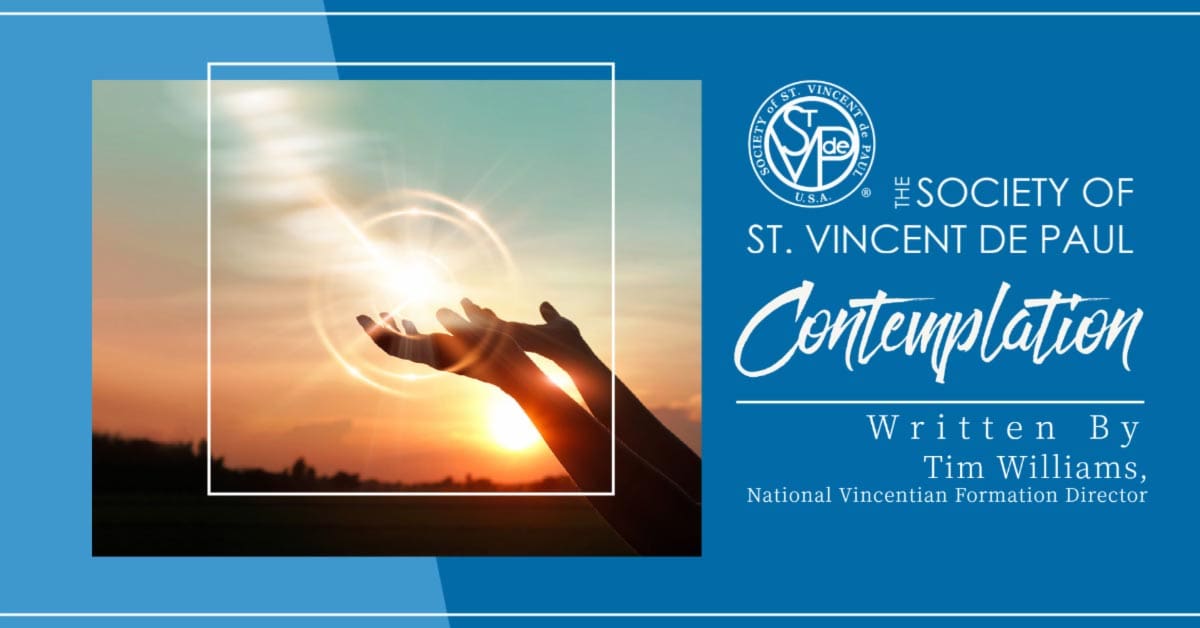Contemplation: Not to Be Forgotten – SSVP USA, a Weekly Reflection
There are thousands of agencies, organizations, and individuals who offer assistance to the poor. In our Conferences we often get to know them and refer neighbors to them when it seems they may be better able to provide for the needs we’ve encountered. We live in a very wealthy nation, filled with generous people. What is it then, that sets the Society apart? What do we bring to the neighbor?
In Frédéric’s time, also, there were other organizations, many of them better funded than the fledgling Society. Yet, he observed, “help is generally dispensed with such culpable indifference.” [1457, Report, 1834] Now, as in Frédéric’s time, our primary purpose in visiting the neighbor is not merely to bring them material assistance. Anybody can do that, and if we measured success in bread alone, it could probably be delivered more efficiently by Amazon, but if we believe as we say, that the hungry one is Christ, surely we are called to do more than toss a loaf of bread on His porch.
In a beloved scene from the 1947 movie Monsieur Vincent, the saint explains that “Only because of your love, and your love only, will the poor forgive you for the bread you’re giving them.” More important than what we give is the manner in which we give it – not carefully measured out from our treasuries, but poured out from our hearts. For Frédéric, this devotion is what prevented Conferences from “degenerating to welfare bureaus.” [182, to Lallier, 1838] The assistance we offer is guided by “the inspirations of the heart rather than the calculations of the mind.” [82, to Curnier, 1834]
And after all, a loaf of bread or an electric bill are only temporary comforts; bringing more of them doesn’t really make them less so. As Frédéric observed, “a donation of bread and money is very meager compared to the support our religion requires us to bring for the comfort of sick souls.” [1457, Report, 1834] As our Rule still reminds us, “Vincentians should never forget that giving love, talents, and time is more important than giving money.” [Rule, Part I, 3.14]
We are called to serve in hope; not the hope of a paid bill, a full belly, or a word of practical advice. All those things, as important as they may be in the moment, will pass. We are called to bring with us what Pope Benedict XVI called the “great hope that cannot be destroyed.” [Spe Salvi, 35]
The poet Maya Angelou once said that “people will forget what you said, people will forget what you did, but people will never forget how you made them feel.” So it is with the neighbors we serve. They will forget the groceries or the light bill; those things anybody can bring. But through our visit, they will feel no longer ashamed, no longer forgotten, no longer alone. They will feel loved— by us, and by the God who sent us.
Contemplate
Do I, in my actions and my manner, always reassure the neighbor of God’s love?
Recommended Reading

Tags: SVDP Contemplation






0 Comments